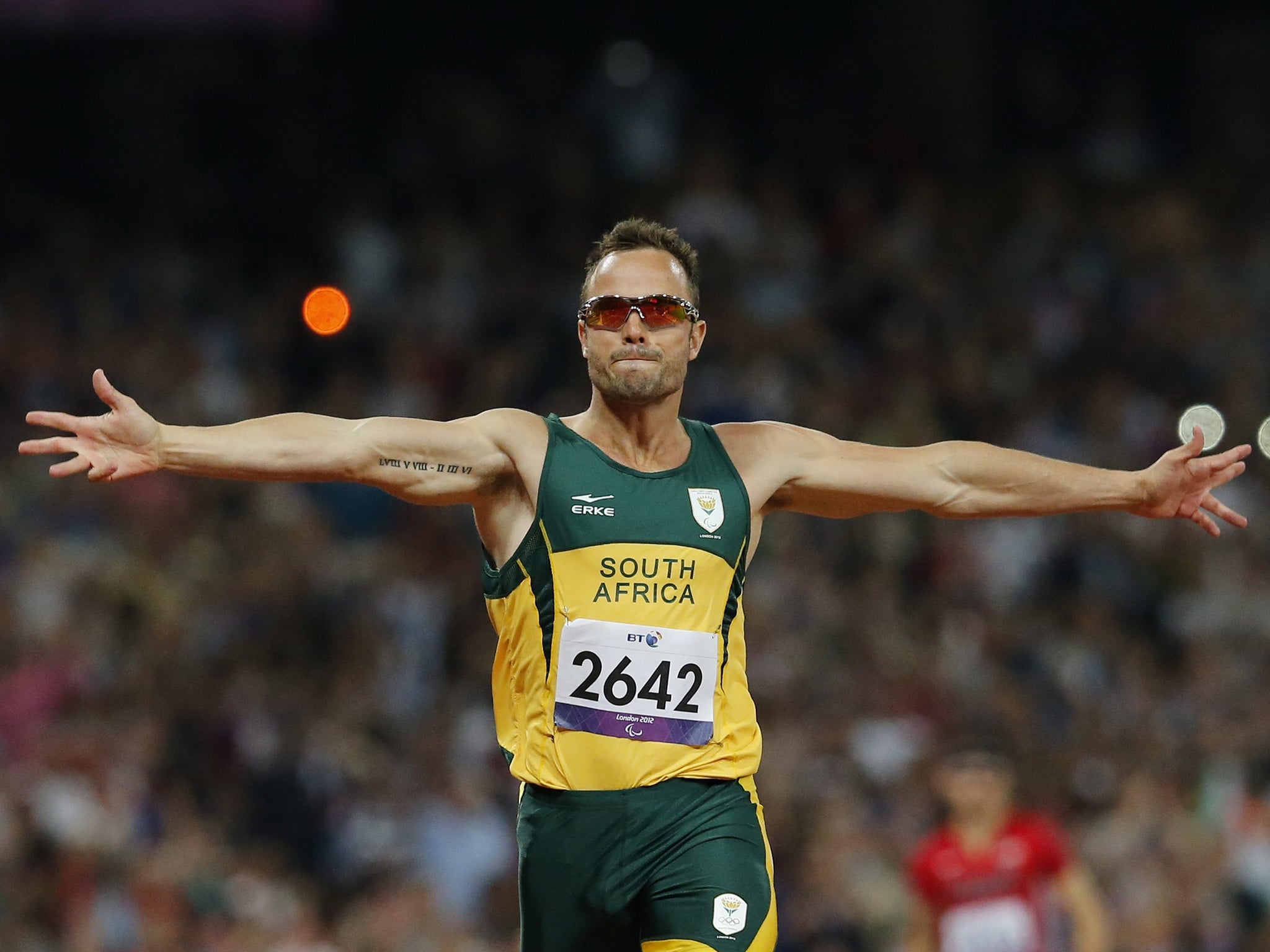How can the ‘fastest Paralympian on Earth’ argue vulnerability?
Pistorius’ defence team’s claim that disabled people are more vulnerable has left us worse off

He was a hero – now he is a villain. He was an icon in the disability sector. Now there are doubts whether he will ever regain that status. Oscar Pistorius never really befriended us but he carried the flag for us, and those like him, around the world.
He gave our brand – “disability” – a boost and attracted lots of positive attention in a similar manner to actor Christopher Reeve – the Superman who brought “quadriplegia” to the notice of millions.
We miss Christopher Reeve, he was the good guy. He only did good. He was looked upon by the world as the person who epitomised the famous slogan “I can” and “just do it” and “ability above disability”. They were the gushy and regular statements made about us if we do something ordinary as people with disabilities.
Clearly, Oscar did something extraordinary in many ways, to the absolute extreme. The sad reality, in my opinion, is that whatever the sentence eventually handed to him, it seems that history of these type of people tells us he will hurt somebody again one day.
Disability was brought into the case and the argument that disability causes vulnerability was presented to the court by the defence’s last witness, Professor Wayne Derman, the team doctor for South Africa’s Paralympics team, and described as an expert in the psychology of disability.
He claimed that disabled people are prone to a more exaggerated “fight or flight” mode when startled. Was the disability sector consulted in this argument? No. Now that judgement has been made, I fear for people with disabilities in South Africa. Whether Oscar Pistorius receives an appropriate sentence or not – now we know he is not guilty of premeditated murder but culpable homicide – may be irrelevant to people with disabilities in South Africa, who may be worse off for this argument presented by the defence.
We want the opportunity to show our worth in vulnerable situations or not. Very few of us carry weapons. The fact is very few of us can use weapons.
We could ask, are we all to go out now and get weapons and use them as the consequence are not as dire? Will employers take the risk of employing us, for fear that we might shoot ourselves out of an argument in the workplace? Will people want to get into relationships with us for fear that we will shoot them with no consequences? Will the South African law be rewritten so that there are some exclusions for us, people with disabilities? Will we easily be able to acquire licenses for weapons?
We must not compromise the rights of people with disabilities who do feel vulnerable. We want protection, we want to ensure that the protection services, whether that be the police or local and national authorities, understand what our needs are in terms of safety and security.
It is also imporant to ensure that the public understand our vulnerability and how to support us. We are often rendered vulnerable by inaccessible environments. We are often vulnerable by inaccessible communication. We are often vulnerable by exclusion from socialising and public transport. None of these vulnerabilities are dealt with by the handing out of weapons, but rather improving infrastructure and services.
We may now be more vulnerable because of the illegitimate argument presented by Oscars’s defence. How is it that a man who held up gold medals and claimed to be the fastest Paralympian on earth, can argue vulnerability? He is tall, he is fast, he is strong.
Those of us who know Oscar, will attest to his arrogance, his ego, his overindulgence, his bad company, his short temper. He does not and did not epitomise the soul and the heart of people with disabilities. All he was on 13 February, 2013, when I spoke to Oscar – the night before Reeva Steenkamp was killed – was fast and beautiful. The rest was ugly.
Will he go to jail? We don’t know, but I hope so. If he does, South Africa’s correctional services must ensure an equitable environment. If he does get jail time, he must do that time. He argued his way into the Olympics, now is his time to stay mainstream when it comes to breaking the law.
It would, however, be wonderful if one day he stood up taller not by his prosthesis but with his soul, and supported Gun Free South Africa, and abused woman associations and committed himself to these causes. He would redeem himself in some small way with me if you saw the global benefit of this commitment.
I am glad this case is over. We want to remain in the mainstream and not be associated with Oscar’s version of vulnerability. We have some amazing Paralympians who will win more gold, and make us proud, without the tantrums.
Rest in peace Reeva. Sit in silence Oscar.
Ari Seirlis is Chief Executive of the QuadPara Association of South Africa (QASA)
